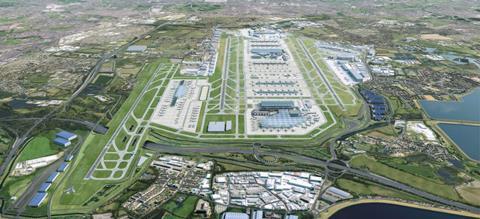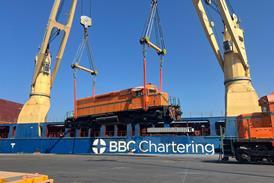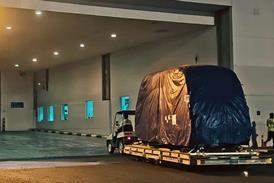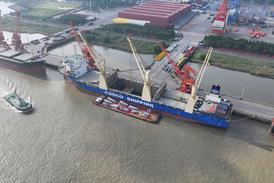The UK’s Department for Transport said Heathrow Airport Limited’s (HAL) own plan for a third runway, which involves moving the M25 motorway, has been accepted by government.

The airport has proposed a new runway which would be up to 3.5 km (2.2 miles) long and would require a new road tunnel under the airport. A rival bid from Arora Group, which has been discarded, involved a shorter runway and did not require altering the M25.
The Department for Transport said that after requesting further information last month from the two developers, the government believes HAL’s proposal offers the most deliverable option and provides the greatest likelihood of meeting the government’s ambition for a decision on a development consent application within this parliament.
Nevertheless, a final decision on whether the development would get a green light is still years away.
The proposal will shape the review of the Airports National Policy Statement (ANPS), which is the framework within which the planning decision on expansion at the airport will be made, and any amendments to the ANPS will be subject to consultation next summer.
The British International Freight Association (BIFA) welcomed the news. Steve Parker, BIFA director general, said: “I realise that this is just the first step in the latest leg of what has been a very lengthy journey over several decades. “Having decided on the viability of the proposals put forward, the government now needs to do everything in its power to abide by its objective to deliver an operational third runway by 2035.
“That will require swift decisions on applications for planning consent, hopefully before the end of this Parliament,” Parker added. “It is now time for everyone, including politicians of all parties, to pull together in the national interest and support the bold plans to expand and improve airport infrastructure at Heathrow in order to maintain the UK’s position as Europe’s most important aviation hub.”
HLPFI reported on the health of the UK’s heavy lift and project logistics market earlier this year. A wave of high-profile UK government announcements – from nuclear plants and floating wind farms to airport expansion – paints a picture of progress. Yet, the reality for those tasked with delivering the country’s project cargo is one of delays, spiralling costs and mounting bureaucracy. One project forwarder described the country as “one of the most difficult and complex markets to contract in”.
















